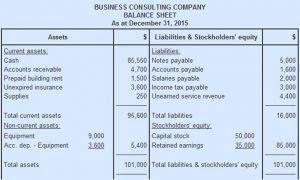
That can change when you use software like Little Hotelier’s all-in-one solution. Little Hotelier gives you everything you need to run your property successfully and feel in control of all aspects of the business. Going through your budget step by step and category by category will make it much easier to see gaps or opportunities that you can address.
- And there is no need to upload any financial data into spreadsheets.
- They don’t use the same figures but adjust them based on the price changes and inflation percentage to propel the next year’s hotel budgeting and forecasting.
- For each category, project the expected revenue based on past performance, market trends, and any upcoming marketing campaigns.
- While it can be difficult to precisely predict revenue, effective revenue management is a key part of creating a hotel budget.
- The budget season typically starts a few months before the end of the current fiscal year and ends before the start of the new year.
What is Hotel Revenue Management?
- Join hands with technology to make laborers’ tasks easier and less stressful.
- While wage increases are many times critical in driving success for the business, leadership needs to be more diligent than ever in managing the overall labor plan.
- For instance, digital or AI-based helpdesk, hotel apps for customer service, etc.
- That has changed in many cases with restaurants and bars now considered a profit center for the overall operation.
With TRG International Blog, it is our mission to be your preferred partner providing solutions that work and we will make sure to guide your business to greatness every day. Furthermore, this collaborative approach fosters a sense of teamwork and empowers them to contribute to the overall success of the business. Discover TRG’s comprehensive resource portal for the hospitality industry here. Let’s look at all the key factors and questions that can help you find the sweet spot for your hotel. This method is not recommended as it doesn’t show you what key necessities are needed across each category.
Hotel Budgeting – Guide on how to make a budget plan for hotel
Instead of concentrating on short-term returns, capital budgets are designed to evaluate how these longer-term projects will add value and drive growth over time. If housekeeping expenses have been higher in the first and third quarter the past three years, for example, anticipate the same trend next year. Allocate for more expenses in the first of third quarters and look for opportunities to cut costs.
The guide to effective hotel budgeting in 2024
This category includes the rent or lease amount, property taxes, and other bills you receive in relation to this. If you rely on tour guides and agents for recommendations and bookings, their commission is a part of your expense structure. The monthly or annual subscription should be a part of your hospitality budget. This category includes every fresh and processed product you buy on a monthly basis. It also consists of any other items you purchase, such as room items, licenses, common area benefits, etc.
Discover hotel budgeting tips that help cut costs, save on labor expenses, and more
In many cases, food and beverage revenues are dependent on room sales. The number of rooms projected on any given night may be an indicator of restaurant revenues as fewer in-house guests will mean less breakfast sales or fewer people at the bar compared to a sold-out night. The intricacies of budgeting can feel overwhelming, but with the help of mentors and hands-on experience, one can learn to navigate this crucial aspect of hotel management. The details hotel budget below will help illustrate the initial key objectives and workflow of creating a hotel budget. In addition, providing department heads with a comprehensive understanding of the budget allows them to align their strategies and actions with the overall financial goals of the hotel. For example, if the marketing department understands their allocated budget, they can plan their campaigns and initiatives accordingly, ensuring optimal utilisation of resources.

American Express Travel Portal

Several internal and external factors can affect a hotel’s budget plan, such as occupancy rates, competition, and economic conditions. However, these numbers vary widely depending on factors such as location, hotel type, and season. For example, luxury hotels may have higher ADRs and RevPARs, while budget hotels may have lower rates but higher occupancy. Preparing for unforeseen costs such as emergency repairs or upgrades is crucial. Maintaining a reserve fund for such capital expenditures can provide a financial cushion in such situations. Unexpected expenses can arise at any time and can significantly impact on your budget if not properly planned for.
Budgets don’t need to be overly difficult
A hotel budget serves as a comprehensive financial roadmap, detailing anticipated earnings and expenses for a specified period, typically one year. It encompasses various revenue sources such as room reservations, food and beverage sales, and additional services, while also accounting for operational costs, marketing initiatives, and capital investments. Additionally, you https://www.bookstime.com/ should analyze last year’s key metrics, such as occupancy rates, average daily rates (ADR), RevPAR (Revenue per Available Room), and customer acquisition costs. Create a detailed revenue forecast that includes a month-by-month and quarter-by-quarter breakdown. This should be based on your historical data, market trends, and any planned marketing or sales initiatives.
Expense budgeting approach #2: Cost per room occupied (or cost per customer served)
According to a study by Hotel Management, linen costs typically account for 3-5% of a hotel’s total operating expenses. The amount of rent or mortgage payments depends on factors such as location, size, and condition of the property. It is essential for hotel owners and operators to factor in these costs when budgeting for operating expenses. When it comes to hotel operating costs, it’s important to understand the difference between fixed and variable costs. Collecting data from past years will allow you to analyse metrics like your occupancy rates, revenue, expenses, customer feedback, and more.


Estimating income from room sales involves forecasting occupancy rates, or the number of rooms sold on any given night, and average rates. Room Revenue earned on any given night equals the number of rooms sold multiplied by the average rate for that day. This highlights the growing significance of digital marketing in the hospitality industry and the need for hotels to adapt to changing trends and consumer preferences. Additionally, planned marketing or sales initiatives are essential to consider any upcoming promotions, advertising campaigns, or events that may attract more guests and increase sales.
